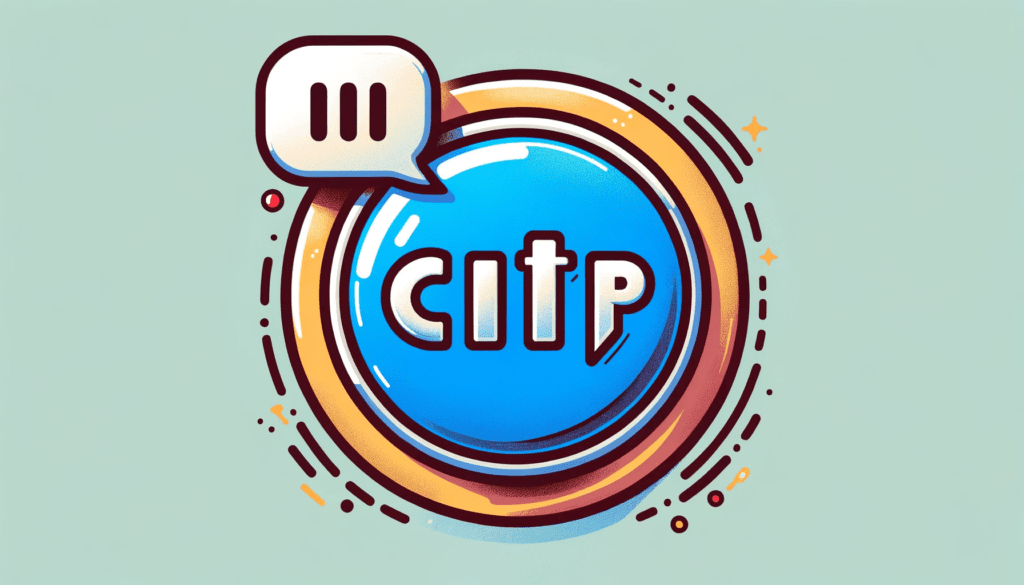ChatGPT, powered by the GPT-3 language model, is an impressive tool that generates text-based responses.However, users have encountered instances where ChatGPT stops writing in the middle of a sentence, causing frustration and impacting the overall user experience. It is important to understand the limitations of ChatGPT and the factors that contribute to this issue.
One possible reason why ChatGPT stops writing mid-sentence is due to the maximum token limit of the GPT-3 model. Tokens are units of text used by the model, and there is a limit to the number of tokens that can be processed in a single request.When ChatGPT reaches this token limit, it stops generating further text, even if it is in the middle of a sentence. For example, if a user asks a long and complex question that exceeds the token limit, ChatGPT may be forced to stop writing before completing the sentence.

Understanding ChatGPT and its Limitations
ChatGPT is powered by GPT-3, a language model developed by OpenAI. GPT-3 has a maximum token limit, which means that there is a constraint on the length of the generated responses. Different account types have different token limits, and exceeding this limit can cause ChatGPT to stop writing mid-sentence. This limitation is in place to ensure efficient processing and resource allocation.
Long and complex prompts can contribute to ChatGPT stopping prematurely. These prompts may contain a large number of tokens, reducing the available space within the token limit for the generated response. As a result, ChatGPT may stop writing mid-sentence to stay within the allowed token range.
To provide an example, imagine a user asking ChatGPT a lengthy and intricate question that requires a detailed response. If the prompt exceeds the token limit, ChatGPT may be forced to stop writing before completing the sentence, leaving the user with an incomplete answer.
Factors Contributing to ChatGPT Stopping Mid-Sentence
Several factors can contribute to ChatGPT stopping in the middle of a sentence. One factor is the computational constraints and memory limitations of the GPT-3 model. The model has a finite amount of computational resources, and when it reaches its limit, it may halt the response generation.
The "vanishing gradient" problem is another factor that can lead to incomplete output. During the training process, the gradients can become too small, resulting in a loss of information. This can cause repetitive or nonsensical text and may contribute to ChatGPT stopping mid-sentence.
Additionally, bugs, internet connectivity issues, and ambiguous input prompts can also play a role in ChatGPT's sudden halt in generating a response. For example, if ChatGPT encounters a bug or experiences a connection interruption while processing a user's input, it may stop writing mid-sentence. Similarly, if the user's prompt is unclear or ambiguous, ChatGPT may struggle to generate a coherent response, leading to an abrupt halt.
Mitigating the Issue
While ChatGPT stopping mid-sentence can be frustrating, there are some strategies that users can employ to mitigate this issue. Breaking down the input into smaller chunks or using shorter prompts can help stay within the token limit and reduce the chances of ChatGPT stopping prematurely.
For instance, instead of asking a single long question, users can divide it into multiple shorter questions or statements. By doing so, ChatGPT has more room within the token limit to generate complete responses without stopping mid-sentence.
Providing more context or feedback to ChatGPT can also improve the quality and completeness of the response. This additional information helps ChatGPT better understand the user's intent and generate a more coherent and relevant output. Users can provide context by giving additional details or specifying their preferences in the prompt.
For example, if a user asks ChatGPT for a recommendation without specifying any preferences, the response may be generic or incomplete. However, if the user provides more context, such as their specific interests or requirements, ChatGPT can generate a more personalized and complete recommendation.
If ChatGPT stops writing mid-sentence, users can try asking it to "keep going" or prompt it to continue the response. This can signal to ChatGPT that the user wants a more complete answer and encourage it to generate additional text.
To illustrate, a user can say something like, "Please continue with your previous sentence" or "I would like more information on that topic." By explicitly requesting ChatGPT to continue, users may receive a more extended response.

Understanding GPT-3's Token Limit
Tokens play a crucial role in the length of ChatGPT's response. Different account types have different maximum token limits, which can impact the amount of text that can be generated. It is important for users to be aware of the token limit associated with their account to manage their expectations accordingly.
For example, a free trial account may have a lower token limit compared to a paid subscription account. Users should familiarize themselves with the token limits to ensure they can effectively utilize ChatGPT without encountering mid-sentence stops.
To provide more context, GPT-3 has a maximum token limit of 4096 tokens for the chat-based API endpoint, while the completion-based API endpoint has a limit of 2048 tokens. These limits include both the input prompt and the generated response. Users need to be mindful of these limits to avoid truncation or incomplete responses.
Exploring Solutions and Workarounds
In some cases, refreshing the webpage can address glitches or bugs that may be causing ChatGPT to stop.If ChatGPT continues to have issues, users can consider using alternative chat AI options during server outages.
Typing phrases like "Continue" or "Keep going" can also prompt ChatGPT to continue the response. Users have found success with specific prompts that encourage ChatGPT to generate a more extended answer. Examples of successful phrases used by users include "Finished already?" or "Share more".
To provide an example, if ChatGPT stops writing after a partial response, the user can type, "Please continue with the rest of your answer." This can often prompt ChatGPT to generate additional text and complete the response.
The Importance of Context in Prompts
Clear and contextual prompts are crucial to obtaining complete responses from ChatGPT. Misspellings or grammatical errors in the input prompt can affect the quality and coherence of the generated response. Providing well-constructed prompts with proper grammar and spelling enhances the chances of receiving more accurate and comprehensive answers from ChatGPT.
For instance, if a user asks ChatGPT, "What is your favrit movi?" the misspelling of "favorite" and "movie" may confuse ChatGPT and result in an incomplete or nonsensical response. However, if the user corrects the prompt and asks, "What is your favorite movie?" ChatGPT is more likely to generate a coherent and relevant answer.
Additionally, providing relevant context in the prompt can help ChatGPT understand the user's intent better. If the prompt is too ambiguous or lacks necessary details, ChatGPT may struggle to generate a complete response. By providing additional context, users can guide ChatGPT to provide more accurate and comprehensive answers.
Enhancements and Updates
The ChatGPT team is continuously working on improving the performance and addressing issues like ChatGPT stopping mid-sentence. As advancements in text-based AI continue to unfold, users can expect surprises and further improvements in the future.
OpenAI regularly releases updates and enhancements to ChatGPT to address user feedback and improve its capabilities. These updates aim to enhance the user experience and minimize issues like mid-sentence stops.
For example, OpenAI has been actively researching ways to increase the token limit for GPT-3, which would allow for longer and more comprehensive responses. By increasing the token limit, ChatGPT would have more room to generate text without stopping mid-sentence.
Impact on User Experience
The issue of ChatGPT stopping mid-sentence can have a significant impact on user experience. Users may feel frustrated when they receive incomplete responses or when ChatGPT abruptly halts in the middle of generating a reply. Addressing this issue is essential for providing a better user experience and ensuring that ChatGPT meets user expectations.
When users interact with ChatGPT, they rely on its ability to generate coherent and complete responses. Mid-sentence stops disrupt the flow of the conversation and may leave users dissatisfied with the overall experience. By understanding the factors contributing to this issue and implementing strategies to mitigate it, the user experience can be significantly improved.
To illustrate the impact on user experience, imagine a user engaging in a conversation with ChatGPT. Every time ChatGPT stops writing mid-sentence, the user's train of thought is interrupted, and they are left waiting for a response that never comes. This can be frustrating and disrupt the natural flow of the conversation, making it less enjoyable for the user.

ChatGPT Use Cases and Benefits
Despite its limitations, ChatGPT has proven to be a powerful tool with various applications in different fields. It showcases its versatility in generating text-based responses, providing assistance, and engaging in meaningful conversations. The benefits of ChatGPT include its ability to generate text efficiently and its potential to assist users in various tasks.
ChatGPT can be used in a wide range of scenarios, such as writing assistance, language translation, content generation, and more. Its ability to generate human-like responses makes it a valuable tool for both personal and professional use.
For example, a content writer can use ChatGPT to brainstorm ideas and generate creative content. By providing prompts and asking questions, the writer can receive helpful insights and suggestions from ChatGPT to enhance their writing.
Conclusion
In conclusion, ChatGPT stopping mid-sentence can be attributed to limitations such as the maximum token limit of the GPT-3 model and the computational constraints it faces. Understanding these limitations and employing strategies to mitigate the issue can improve the quality and completeness of the generated responses.
Breaking down prompts, providing more context, and prompting ChatGPT to continue writing when it gets stuck are effective ways to address the issue. Additionally, being mindful of the token limits associated with different account types can help users manage their expectations.
OpenAI's continuous efforts to enhance ChatGPT and address user feedback are promising. As advancements in text-based AI unfold, users can anticipate improvements and surprises that will further enhance the user experience.
Addressing the issue of ChatGPT stopping mid-sentence is crucial for providing a better user experience. By understanding the limitations and providing necessary context or feedback, users can make the most of ChatGPT's capabilities and enjoy more complete and satisfying interactions.
Overall, ChatGPT has demonstrated its usefulness and versatility in various domains, despite its limitations. It has the potential to revolutionize the way we interact with AI and offers significant benefits in generating text-based responses.